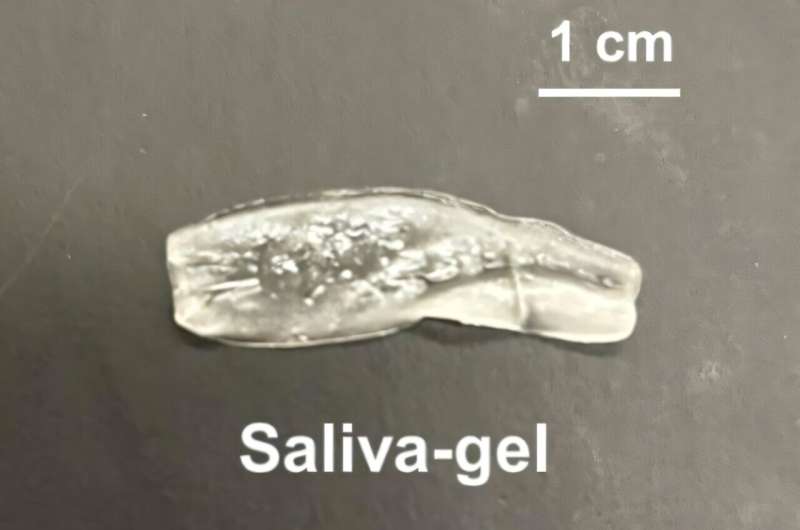Dry mouth is a condition whereby the salivary glands do not produce enough saliva. Many medications to treat dry mouth boost natural saliva production, but they either provide temporary relief or have unwanted side effects, including mouth irritation and tooth erosion. Previous research identified that artificial saliva, often used in laboratory studies, could be a promising alternative to current medications.
Like natural saliva, artificial saliva is mostly water and contains mucins—a class of compounds that lubricate the mouth and have antimicrobial properties. So, Suman Debnath, Georgia Malandraki, Bryan Boudouris and colleagues wanted to develop an artificial saliva reservoir that could be placed in the mouth and regulate the release of saliva over time.
To create the reservoir, the researchers mixed artificial saliva with a biocompatible polymer poly(hydroxyethyl methacrylate), which is commonly used in medical applications such as contact lenses. The resulting hydrogel is a clear blob roughly the size of a U.S. quarter and small enough to fit in the inner cheek or below the tongue.

